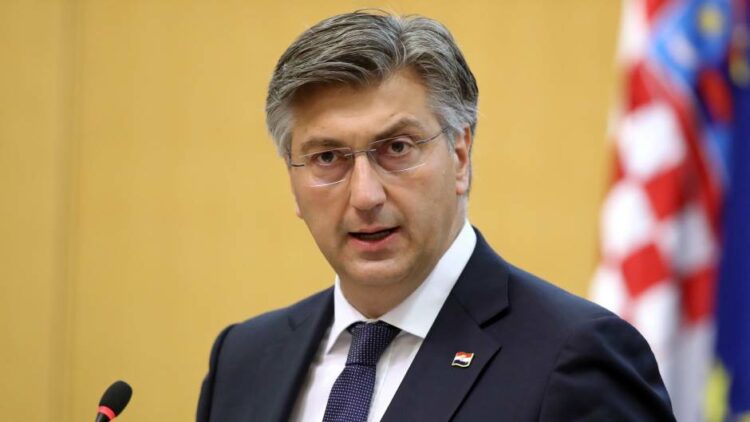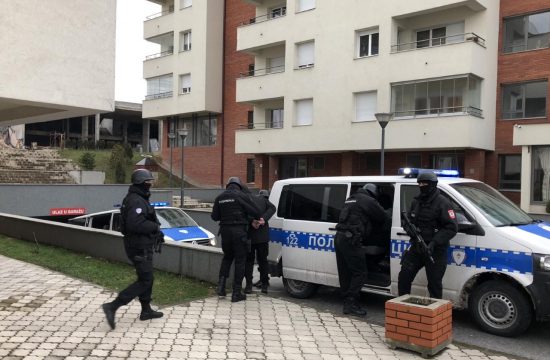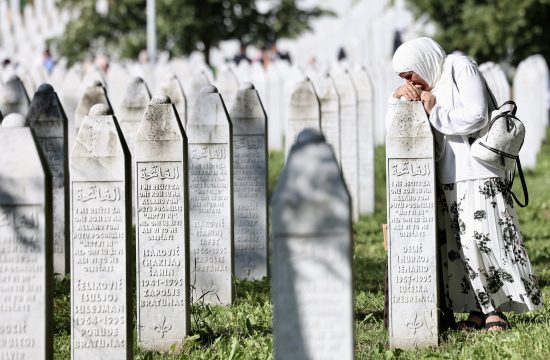
Prime Minister Andrej Plenkovic said on Tuesday that he had made it clear to Bosnia and Herzegovina's SDA leader Bakir Izetbegovic and HDZ BiH leader Dragan Covic during their meeting in Zagreb on Monday that it was not good that the Croats had their representative of the collective presidency chosen by another ethnic group.
“We think that the practice that has existed since 2006 is not good, that the Croats have their representative on the presidency chosen by another ethnic group. I made that clear to Izetbegovic and Covic yesterday,” Plenkovic told the press during a visit to the 3. Maj shipyard in the northern Adriatic city of Rijeka.
“Respecting Bosnia and Herzegovina and its institutions, our view is that stakeholders in Bosnia and Herzegovina themselves, the institutions and political parties, should produce such an election law that will prevent the situation that exists today, that one constituent people feels that things are unfair,” Plenkovic said, adding that he was confident that the Croatian position would not change regardless of who was in power.
Plenkovic said that the meeting with Izetbegovic and Covic, who also serve as deputy speakers of the upper house of the Bosnia and Herzegovina Parliamentary Assembly, was very good, adding that the Croatian goal was “to develop harmonious relations” with Bosnia and Herzegovina and that the two countries were oriented towards each other. The Serb member of the presidency, Milorad Dodik, had visited Zagreb two weeks previously.
“We discussed a number of economic and political issues as well as the coming elections in Bosnia and Herzegovina in November and elections in Mostar in December,” Plenkovic said, stressing that ahead of the 25th anniversary of the Dayton agreement, which ended the 1992-1995 war in Bosnia and Herzegovina, this agreement should be honoured to ensure that all three constituent peoples were represented in the country's political institutions.
Croatia's Minister of Foreign and European Affairs, Gordan Grlic Radman, who also participated in Monday's meeting, said on Tuesday that the 25th anniversary of the Dayton agreement was an opportunity to see whether Bosnia and Herzegovina “as a complex multinational state is stable and functioning.”
He announced further dialogue between the two governments, adding that a date of the meeting had not been fixed yet. Croatia is a true advocate of a functioning and stable Bosnia and Herzegovina, Grlic Radman said.
Speaking to the press after the meeting on Monday, Covic said that the current treatment of the Croats in Bosnia and Herzegovina was the path to a permanently non-functioning Bosnia and Herzegovina. He said that he and Izetbegovic still disagreed on how to change the election law.
“I insisted that we stick to the agreements that we signed together in front of many representatives of international institutions in Bosnia and Herzegovina,” Covic said, adding that these agreements were the basis for bringing the views of the Bosniak and Croat sides closer together.




